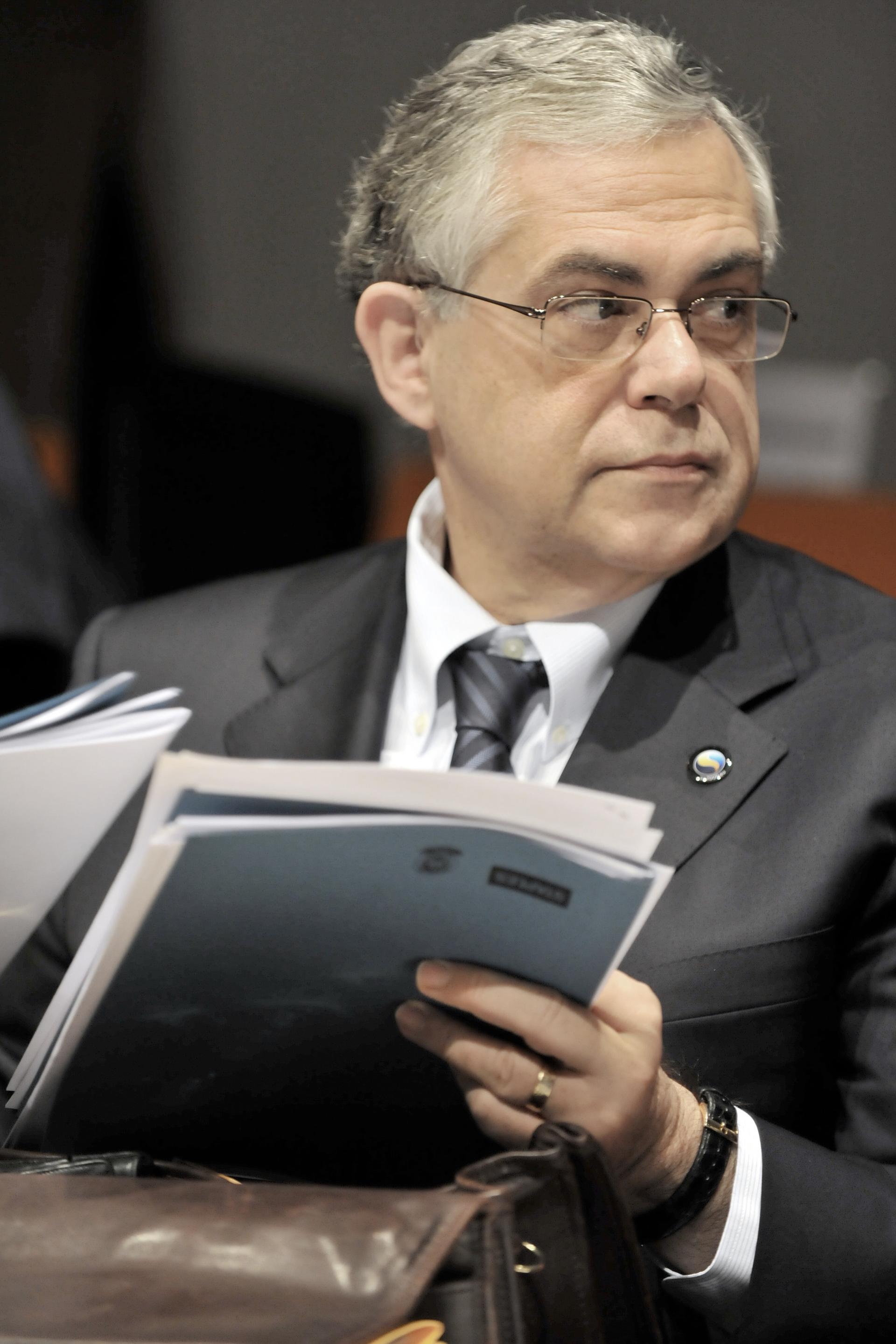Lucas Papademos named Greece’s new PM
European Central Bank VP Lucas Papademos will reportedly become the next Greek PM.
Lucas Papademos, the former vice president of the European Central Bank, has been named Greece's new prime minister. He takes over from George Papandreou at the head of a new interim government.
Papademos' appointment was agreed by Greek President Karolos Papoulias and leaders of the country's three main parties after days of negotiations.
His cabinet will be named later Thursday.
GlobalPost analysis: Greece's new government: Why it won't matter
The new government of national unity will be sworn in on Friday afternoon, the president's office said. Papademos is then expected to face a confidence vote before parliament Monday.
Papademos said he was taking over at a "critical point" for Greece:
"[The job] will not be easy, but I am convinced the problems will be solved […] in a quicker and more efficient way if there is unity and consensus."
The new administration's chief task, according to the president's statement, will be to implement the European Union bailout package agreed last month.
To do that Papademos will have to get MPs on his side, said Bloomberg:
Papademos’s task will be to navigate parliament, the focus of a wave of street protests in recent months, through the legislation needed to secure the next rounds of emergency funding.
It is not yet known how long Papademos will stay in office before elections are called. The BBC cites his wife as saying she hoped he would make a difference "even if it's only for three months."
The decision follows days of political wrangling, said the New York Times. Outgoing prime minister Papandreou was initially expected to hand over to parliamentary speaker and party stalwart Filippos Petsalnikos, but this decision was apparently unpopular with younger members of Papandreou's PASOK party.
They publicly expressed a preference for Papademos, who they saw as "a dynamic and technically able choice" according to the Times. He quickly became the favorite, leading public popularity polls.
But the change of face may not be enough to satisfy Greeks' demand for change, writes GlobalPost's analyst in Athens, Ken Maguire:
Don’t count on a honeymoon period for the budding interim government. Many Greeks frustrated by tax hikes and pay cuts expect little to change.
After all, regardless of who takes over, power will rest in the hands of PASOK — the socialist party of Papandreou — and the conservative opposition, New Democracy. That’s the way Greek politics have been since 1974. Many Greeks are convinced that nothing will change under this duopoly, and that it’s time for new blood.
Papandreou, who resigned as PM Sunday, said that he would do everything he could to support his successor.
The Greek stock market rose sharply at the news of the appointment.
Every day, reporters and producers at The World are hard at work bringing you human-centered news from across the globe. But we can’t do it without you. We need your support to ensure we can continue this work for another year.
Make a gift today, and you’ll help us unlock a matching gift of $67,000!
